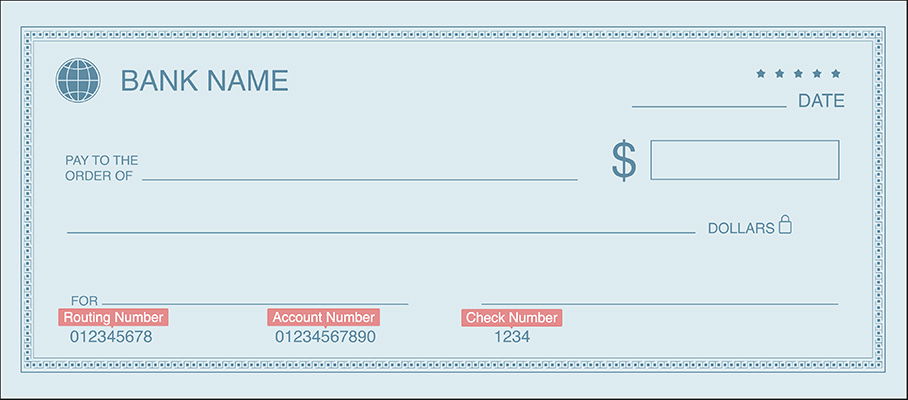Managing your finances requires making important decisions, and choosing the right bank is one of the most critical choices that can have a significant impact on your financial well-being for many years.
The plethora of options available can make it daunting to begin. This guide will walk you through the most important factors to consider when selecting a bank. This will enable you to make an informed decision that aligns with your unique financial requirements.

Where to Keep Your Money: Exploring Different Banking Types
When it comes to choosing a bank, there are various options to consider, such as traditional banks, online banks, and credit unions. Each type of bank has its own set of benefits and drawbacks, and understanding the differences between them is necessary before making a decision.
Traditional Banks
Traditional banks, also known as brick-and-mortar banks, are physical institutions that allow you to conduct your banking business in person at branch locations. These banks offer a broad array of products and services, such as checking accounts, savings accounts, loans, and investment products.
While traditional banks offer the convenience of a physical location and wider ATM networks, they also come with higher fees and lower interest rates on deposit accounts. Additionally, to avoid monthly maintenance fees, traditional banks may require higher minimum balances.
Online Banks
Online banks, as the name implies, operate exclusively online without any physical branch locations. These banks are renowned for offering higher interest rates on deposit accounts and lower fees than traditional banks.
Despite these advantages, the absence of face-to-face interactions can be a significant drawback for some customers who prefer personalized service for their banking needs. Moreover, online banks may offer a limited range of financial products and services such as investment products or small business loans, which could restrict your choices.
To make up for the lack of physical branches, online banks generally maintain a large network of ATMs. However, since cash deposits are not possible, customers must resort to wire transfers, direct deposits, or mobile check deposits as primary options for depositing cash.
Nevertheless, online banks have undergone transformation over the years, expanding their offerings to include mobile banking, online bill payment, and other innovative digital features. So, if you value convenience and accessibility to the latest financial technology, an online bank may be a viable option.
See also: Best Neobanks of 2024
Credit Unions
Unlike traditional banks, credit unions are non-profit financial institutions owned and operated by their members. This non-profit structure permits credit unions to offer higher interest rates on deposit accounts and lower fees than traditional banks.
One of the significant benefits of credit unions is their commitment to personalized customer service. Credit unions prioritize their members’ needs as they are owned by them, resulting in more personalized service than you’d get with a traditional bank.
However, credit unions’ access to funds may be limited as they usually have a smaller network of ATMs and branch locations. Additionally, membership requirements for credit unions may be more restrictive, requiring affiliation with a particular employer or community.
See also: Best Nationwide Credit Unions of 2024
How to Choose the Right Bank for You
1. Know Your Needs
Before choosing a bank or credit union, it’s essential to understand your financial needs and goals. This will help you determine which types of accounts you need and which bank is the best fit for you. Here are some factors to consider:
Types of Bank Accounts
Banks offer a range of account types to their customers, each with their own unique benefits. Here are some common options to consider:
- Checking accounts: Checking accounts are used for daily transactions such as bill payments, check writing, and debit card usage.
- Savings accounts: A savings account is ideal for saving money for future expenses or unexpected emergencies. Deposits typically earn interest over time.
- Money market accounts: Similar to savings accounts, but money market accounts typically have higher interest rates and minimum balance requirements.
- Certificates of deposit: A certificate of deposit (CD) is type of savings account that requires a fixed deposit over a set period of time, typically ranging from 6 months to 5 years. CDs often offer higher interest rates, but withdrawing your funds before maturity can result in a penalty.
2. Consider Your Financial Goals
The accounts you require will largely depend on your financial objectives. For instance, if you aim to save up for a house down payment, a high-yield savings account could be the way to go. On the other hand, if you want to maximize the interest earned on your savings, then a money market account or CD may be more suitable.
3. Determine Which Accounts You Need
After determining your financial objectives, you can select the accounts that meet your needs. For instance, if you require a checking account for everyday transactions and a savings account for unforeseen expenses, you’ll need to find a bank that provides both.
Some banks offer more account options than others, so it’s essential to find a bank that matches your specific requirements. Furthermore, make sure to compare fees and interest rates between different banks to choose the best fit for your financial circumstances.
Understanding Bank Fees and Charges
When choosing a bank or credit union, it’s imperative to understand the fees that come with your account. Here are some common fees charged by banks and credit unions:
- Monthly maintenance fees: Many banks charge monthly fees for account maintenance. The amount can differ depending on the bank and account type.
- Overdraft fees: When your account balance falls below zero due to exceeding your available funds, overdraft fees are incurred. These fees can quickly add up and become costly.
- ATM fees: Banks may impose ATM fees when you use ATMs that are outside their network. This charge varies depending on the bank and the ATM location.
- Foreign transaction fees: A foreign transaction fee may be charged when you use your debit or credit card while traveling abroad. Typically, this fee is a percentage of the total transaction amount.
How to Compare Fees
To ensure you’re getting the best deal on fees, here are some steps you can take:
- Look for fee schedules online: Most banks and credit unions have their fee schedules posted online. Look for the specific fees associated with the account types you’re interested in.
- Ask for a list of fees from the bank: If you can’t find the fee schedule online, or you have additional questions, reach out to the bank and ask for a list of fees associated with the accounts you’re interested in.
- Use online comparison tools: There are many online comparison tools available that can help you compare fees between different banks. Use these tools to find the bank that offers the lowest fees for your specific needs.
By understanding the fees associated with your accounts and comparing fees between different banks, you can save money and find a bank that fits your financial situation.
Convenience Factors to Consider When Choosing a Bank
When choosing a bank or credit union, convenience is an important factor to consider. Here are some aspects to keep in mind:
Location of Bank Branches
If you prefer in-person banking, choose a bank that has branches conveniently located near you. This will make it easier for you to visit the bank and access its services.
Online Banking Services
With the rise of online banking, most banks provide various online services that can make banking more convenient. Some common online services to look for include:
- Mobile banking: Many banks offer mobile banking apps that allow you to check your balance, transfer money, and pay bills from your smartphone.
- Bill pay: Online bill pay allows you to pay your bills directly from your bank account without having to write checks or use a third-party service.
- Remote check deposit: Some banks allow you to deposit checks remotely using your smartphone or scanner, which can save you time and effort.
ATM Network
To avoid the inconvenience of paying out-of-network ATM fees, it’s recommended that you find a bank or credit union with a broad ATM network, especially if you’re a frequent traveler or reside far from a bank branch.
While national banks usually have their own ATMs, online banks and some regional and national banks might provide access to a more extensive network of ATMs via partnerships with other banks and ATM providers.
Credit unions can also offer access to a vast network of ATMs through shared branching, allowing members to conduct transactions at other credit union branches.
Customer Service Availability
When you have a question or issue with your account, it’s essential to have access to customer service. Look for a bank with customer service available by phone, email, and chat to ensure you can get help when you need it.
By considering convenience factors such as the location of bank branches, online banking services, ATM network, and customer service availability, you can choose a bank that fits your lifestyle and makes banking as easy as possible.
Research Reputation and Stability
When it comes to choosing a bank, reputation and stability are essential factors to consider. Here are some ways you can research a bank’s reputation and stability:
Look up Reviews and Ratings of the Bank
Browse online reviews from other customers to gain insights into their experiences with the bank. Look for feedback and ratings on consumer websites such as Yelp or the Better Business Bureau.
Check the Bank’s Financial Stability
Choose a bank that is financially stable and secure. Examine the bank’s financial statements, including its income statement and balance sheet, to evaluate its overall financial health. Also, check the bank’s ratings from independent credit rating agencies like Moody’s, Standard & Poor’s, or Fitch.
Investigate the Bank’s History and Track Record
Determine how long the bank has been in operation and if it has faced any financial difficulties or scandals. Search for news articles and press releases to determine if there have been any recent regulatory actions or controversies against the bank.
By taking the time to research a bank’s reputation and stability, you can make an informed decision and select a trustworthy and dependable bank.
Understand Security Measures
When it comes to your finances, security should always be a top priority. Here are some security measures to look for when choosing a bank:
FDIC or NCUA Insurance
The Federal Deposit Insurance Corporation (FDIC) and National Credit Union Administration (NCUA) insures deposits at banks and credit unions for up to $250,000 per account. This means that if the bank or credit union fails, your deposits are protected up to this amount.
Other Security Measures Offered by Banks
Look for banks that offer additional security measures like:
- Two-factor authentication: This is an extra layer of security that requires you to verify your identity using a second method, like a fingerprint or a text message code, in addition to your password.
- Fraud monitoring: Banks may use algorithms and other tools to monitor your accounts for suspicious activity, such as large or unusual transactions.
- Alerts and notifications: Many banks will send you email or text alerts to notify you of account activity, such as when a large transaction is made or when your balance falls below a certain threshold.
Take Advantage of Promotions and Incentives
Banks often offer promotions and incentives to attract new customers and retain existing ones. Here are some to look out for:
Introductory Offers for New Customers
Banks often offer cash bonuses or other rewards for new customers who open certain types of accounts or meet certain requirements.
Rewards Programs for Account Holders
Look for banks that offer rewards programs for things like debit card purchases or bill payments. These rewards can include cash back, points, or other perks.
Other Incentives Offered by Banks
Some banks offer additional incentives, such as waived fees or free financial planning sessions, to encourage customers to open accounts or use certain services.
By taking advantage of promotions and incentives, you can get more value out of your banking experience and potentially save money on fees and other charges. Just be sure to read the fine print and understand any requirements or restrictions before signing up.
Bottom Line
To summarize, selecting the right bank is a crucial decision that can significantly impact your financial health. Keep the following key points in mind:
- Assess your needs to determine which bank type, be it traditional, online, or credit union, aligns with your requirements.
- Identify your financial objectives and opt for a bank that offers accounts that can help you reach those goals.
- Leverage online comparison tools to weigh fees across various banks and select the one that offers the best deal.
- Convenience is critical. Consider factors such as branch locations, online and mobile banking services, ATM networks, and customer service availability.
- Before opening an account, research the bank’s reputation and stability to ensure it meets your standards.
- Ensure that the bank provides security measures such as FDIC insurance, two-factor authentication, fraud monitoring, alerts, and notifications.
- Take advantage of the bank’s promotions and incentives, including rewards programs and introductory offers for new customers.
By carefully researching and comparing banks based on their fees, convenience, security, and incentives, you can make an informed choice that aligns with your financial goals and objectives.



